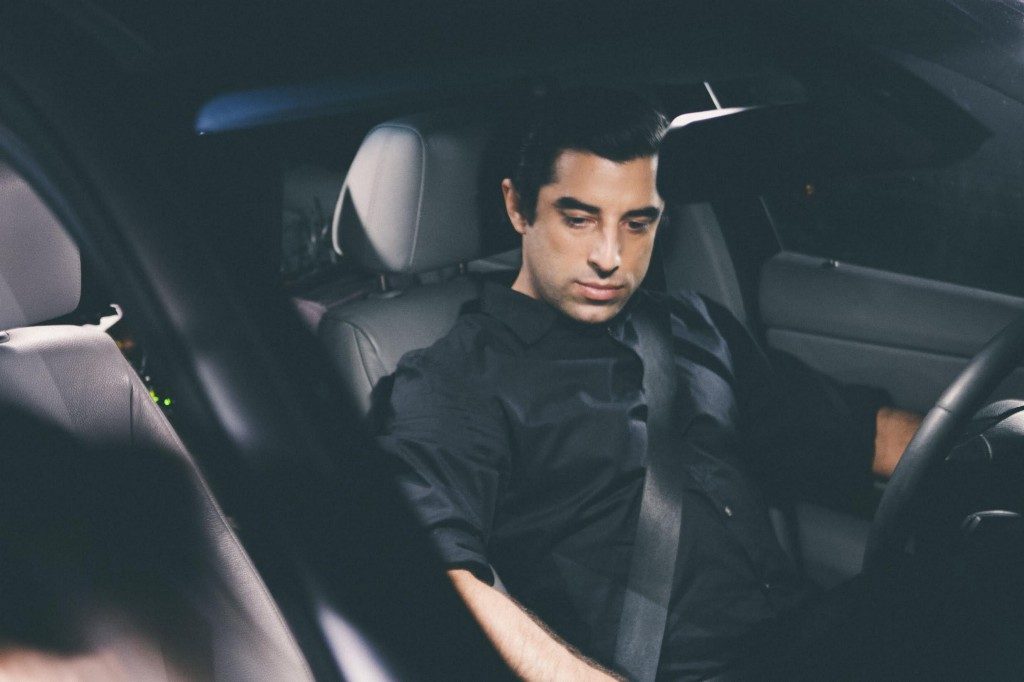Heidi Saman was named one of Filmmaker Magazine’s 25 New Faces to Watch in 2014. Her short film, “The Maid (Il Shaghala),” premiered as an official selection of the Cannes Film Festival in 2008 and went on to screen at festivals worldwide. Currently Saman is an associate producer for National Public Radio’s “Fresh Air with Terry Gross.” “Namour” is Saman’s first feature film.
“Namour” will premiere at the 2016 LA Film Festival on June 5.
W&H: Describe the film for us in your own words.
HS: “Namour” is about the decisions we make when our responsibilities begin to weigh down our convictions — and why life can feel like it’s passing us by. It’s about a valet driver who’s stuck in his job and in his life. And it’s a homage to my hometown of Los Angeles.
W&H: What drew you to this story?
HS: I wanted to make a film about feeling stuck. There have been stretches of time in my life that have felt like everything around me was moving along — except for me — and I wanted to make a film about that feeling. People talk about your 20s as being a time full of possibilities, but I felt the complete opposite. I felt burdened by possibility and couldn’t make any decisions. Cinematically, I thought this would be a challenging thing to visualize.
I began writing the script in the aftermath of the 2008 economic recession as a way of making sense of what I saw happening all around me. Co-workers were getting laid off, my neighbors were losing their homes, and my peers were tightening their budgets, fearing it would get worse. People were afraid — but I noticed something else. The recession was changing how we thought about ourselves and about the futures we thought we would have.
I wrote “Namour” to try and understand what the “American Dream” means after the recession and how that kind of financial fear could drive someone to do some uncharacteristic things.
W&H: What do you want people to think about when they are leaving the theater?
HS: I like films that feel like they’re a window into how a director sees and experiences the world. They’re atmospheric, intimate, and don’t offer easy resolutions. My hope is to create a relationship with audiences that makes them say, “I want to see that new Heidi Saman film!”
W&H: What was the biggest challenge in making the film?
HS: Without a doubt, the financing was the biggest challenge. “Namour” features an Arab-American lead and when I tried to raise money through financiers, most of them turned it down because they didn’t think there was an audience for an independent film that features Arab-Americans. Some financiers told me that they couldn’t back a film that had Arab-Americans as the leads because they weren’t “likeable” enough for audiences.
These investors — several of whom were Arab — wanted me to reiterate and reinforce Arab stereotypes and storylines that were safe, “market-approved,” and not at all connected to the story I wanted to tell. As a result, my film was funded mostly by grants.
W&H: How did you get your film funded? Share some insights into how you got the film made.
HS: [The film was funded by] a Knight Foundation Grant, the Panavision New Filmmaker Grant, a Leeway Artist Grant, a personal loan, my parents, my successful Kickstarter campaign, and a trio of thoughtful investors.
W&H: What’s the best and worst advice you’ve received?
HS: The best advice I’ve received is to just keep going. Making “Namour” took a level of persistence that I didn’t know I had within me. Setbacks in filmmaking are not personal, but it’s very hard to know that when you’re in the middle of the storm, so to speak. Setbacks are as normal to filmmaking as camera equipment, they just come with the territory, so the sooner you accept that, the sooner you move on to finding a way around them.
The worst advice I received was from a potential investor who told me to incorporate terrorism into the story of “Namour” so my Arab-American lead would be more marketable to audiences.
W&H: What advice do you have for other female directors?
HS: I don’t have any advice for other female directors: I just want to meet them and hear their war stories!
W&H: Name your favorite woman-directed film and why.
HS: People cite Agnès Varda all the time, but there’s a reason. “Cleo from 5 to 7” is one of my favorite films and it becomes more meaningful to me as I get older. It has an energy to it that is so of the time it was made, but the film manages to be timeless as well. It’s the perfect combination of the personal and the political, which is something I strive for in my work.






